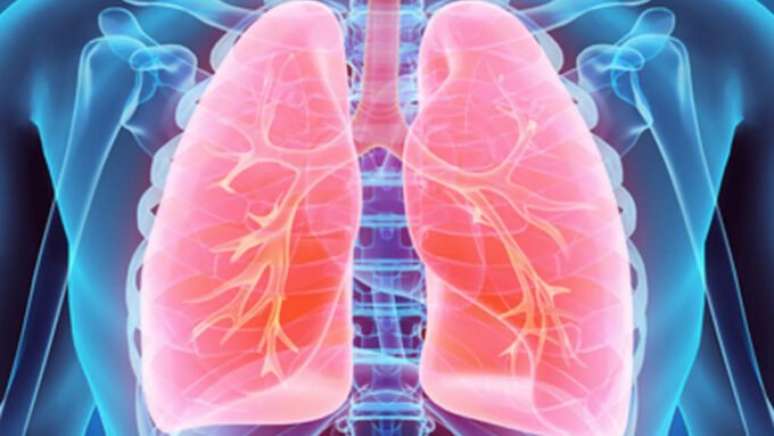The respiratory system is exposed to various risks and diseases, but health problems can be avoided with various precautions.
Summary
The respiratory system is important for maintaining vital functions and can be affected by diseases, but medical care and treatments can prevent serious consequences.
THE respiratory system It is essential for humans and plays an important role in maintaining the vital functions of organs and other areas of the human body.
Therefore, any impact on its functioning, such as that caused by disease or risk situations, can have serious health consequences.
- Read also: Respiratory diseases in the cold: tips to strengthen the immune system
Some situations can cause tiredness and indisposition, without risking physical integrity or life. However, in more severe cases or when faced with serious illnesses, it is essential to seek appropriate care and medical evaluation. The specialist responsible for the care of the respiratory system is the pulmonologist.
What is part of the respiratory system?
The respiratory system, also called the respiratory system, is made up of a set of organs and branches that capture oxygen from outside the body and eliminate carbon dioxide that the organism produces in its metabolism.
Therefore, its main function is to carry out gas exchange through inhaling oxygen and exhaling carbon dioxide, since human metabolism needs oxygen to function.
During breathing, the respiratory system filters the oxygen present in the air and transports the substance through the bloodstream to the rest of the body, until it reaches the cells. In turn, they use oxygen to function and, in the process, eliminate carbon dioxide, which is also transported through the system to the lungs until it is eliminated during exhalation.
The respiratory system also contributes to activities such as speech, defense of the lungs, and balancing the acidity of the blood. The organs that make up the respiratory system are:
- Nasal cavities;
- Pharynx;
- Larynx;
- Trachea;
- bronchi;
- Bronchioles;
- Alveoli;
- Lungs.
These organs are divided into two airways. The so-called upper airways are made up of the nasal cavities, pharynx and larynx. The lower airways are made up of the trachea, bronchi, bronchioles, alveoli and lungs, in the thoracic cavity.
- Read also: Discover the ten most dangerous professions for your lungs
What are the main diseases of the respiratory system?
The respiratory system can be attacked by a number of diseases that can compromise its functioning.
Furthermore, the vital function of this system can also give rise to new health problems or worsen pre-existing conditions, since breathing is important for the functioning of other organs and systems in the human body.
Among the main respiratory diseases we remember:
- Asthma;
- Pneumonia;
- rhinitis;
- Sinusitis;
- Tuberculosis;
- Laryngitis;
- Pharyngitis;
- Bronchitis;
- Bronchiolitis;
- COVID-19;
- Chronic obstructive pulmonary disease (COPD).
It is also possible to face health conditions that damage the respiratory system due to allergies to pollen, dust, animal dander, soot or pollution.
Allergies can worsen during times such as winter, when cold, dry weather causes people to stay indoors, making them more susceptible to the proliferation of allergy-causing substances.
- Read also: The main respiratory diseases in children – and how to deal with them
7 tips on how to take care of your respiratory system
Maintain good hygiene
It is important to wash your hands often to avoid transporting microorganisms on your hands into the upper airways.
Therefore, it is recommended to always wash your hands before consuming food or immediately after exposure to risks, such as when using public transport or handling objects that may contain allergic components.
Be in ventilated environments
Especially in periods such as winter, being in environments with natural ventilation, with windows and doors open, helps to avoid the concentration of microorganisms harmful to the respiratory system.
It is also important to carry out periodic and adequate maintenance of devices such as humidifiers or air conditioners.
Strengthen immunity
Immunity can be strengthened to prevent the proliferation of respiratory problems. Consuming water frequently, following a good diet, practicing physical activity and sleeping well at night are actions that contribute to keeping the body’s immune defenses stronger.
- Read also: Foods to strengthen the respiratory system in dry weather
Keep your vaccinations up to date
Vaccination against diseases such as Covid-19 or variants of the influenza (flu) virus is essential to prevent the spread of serious respiratory illnesses. At the same time, vaccination helps reduce the rates of transmission of these diseases, especially to the most vulnerable groups, such as children, the elderly and immunocompromised people.
Avoid e-cigarettes or regular cigarettes
The use of electronic or conventional cigarettes can cause or aggravate respiratory problems, as these items produce a number of substances that are toxic to the body.
Therefore, smoke inhalation should be avoided, even in the case of people close to smokers, also called “passive smokers”.
Be careful inside and outside
Respiratory illnesses can be caused by exposure to moldy or dirty environments, such as dust, soot or animal dander. Furthermore, crowded places or places with poor air circulation, such as public transport, also favor the onset of respiratory problems.
Seek medical attention quickly
When faced with health conditions related to the respiratory system, it is important to seek medical advice and evaluation as quickly as possible, so that the situation does not worsen.
Furthermore, self-medication should be avoided as it can have serious health consequences and even compromise the fight against possible diseases.
To discover more tips on self-care, health and disease prevention, browse Terra Você!
Source: Terra
Ben Stock is a lifestyle journalist and author at Gossipify. He writes about topics such as health, wellness, travel, food and home decor. He provides practical advice and inspiration to improve well-being, keeps readers up to date with latest lifestyle news and trends, known for his engaging writing style, in-depth analysis and unique perspectives.








![Such a wonderful sun in advance: Summary of the episode on Tuesday, August 12 [SPOILERS] Such a wonderful sun in advance: Summary of the episode on Tuesday, August 12 [SPOILERS]](https://fr.web.img3.acsta.net/img/8d/96/8d9627fc84d0ab5d33162b65dbbae176.jpg)
